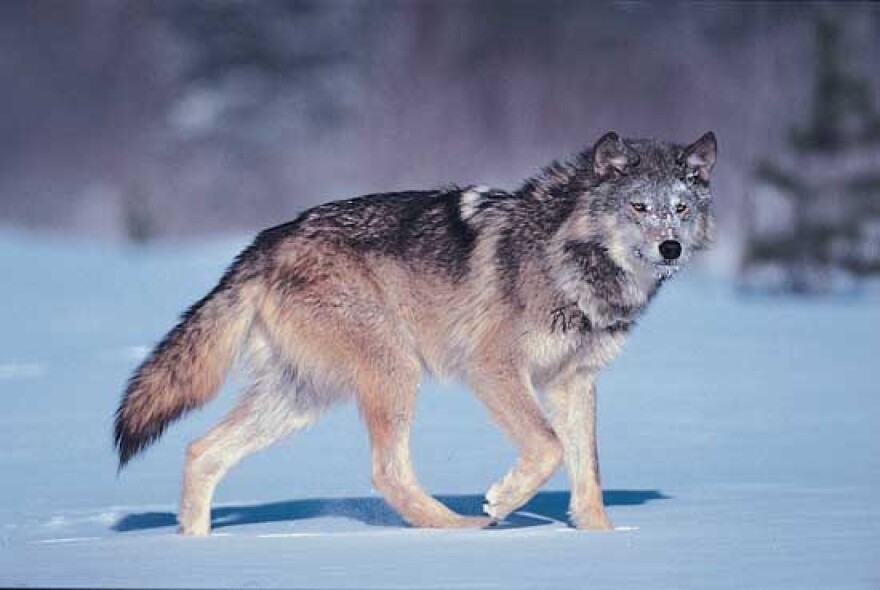There could soon be dueling petition drives on opposite sides of the debate over wolf hunting in Michigan.
Next week, a coalition of Michigan hunting groups will ask the Board of State Canvassers to approve the wording of a petition for a new state law.
“The wolf hunting debate alerted us to the need for this type of decision making process,” says Drew YoungeDyke. He’s with Citizens for Professional Wildlife Management.
“But it’s not just about wolf hunting. It’s about wildlife management,” adds YoungeDyke.
The “Scientific Fish and Wildlife Conservation Act” would direct the Natural Resources Commission to designate game species using “sound science”. That would allow the body to designate what animals should be hunted in Michigan. The act would also allocate a million dollars to the NRC. That appropriation would prevent wolf hunt supporters from launching a referendum petition to challenge the law.
If the hunting groups can collect the more than quarter million petition signatures needed, the legislature would have the option to affirm the proposed law. If state lawmakers, who have already approved two similar laws, decide to pass, it would land on the statewide ballot.
Wolf hunt opponents are in the midst of their second petition drive to challenge a state law. Their first petition drive succeeded in collecting more than a quarter million signatures to set a statewide vote in November, 2014. After that, the legislature passed a second law authorizing the NRC to create a wolf hunt in the Upper Peninsula.
Jill Fritz is with Keep Michigan Wolves Protected. She’s accusing backers of the petition drive of “making an end run around the voters” to get their way on the wolf hunt.
“No matter how many measures they introduce, Keep Michigan Wolves Protected will keep working to restore the rights of Michigan voters to have a say on wildlife policy,” says Fritz.
11 wolves have been killed in the Upper Peninsula in the hunt that began on November 15th. State wildlife officials set a goal of 43 wolves.
State wildlife officials estimated last winter that there were 658 gray wolves in the Upper Peninsula. The gray wolf was nearly non-existent in the U.P. two decades ago.
Supporters of the hunt say the gray wolf population now presents a threat to livestock and pets.
Opponents say the threat is mainly a myth and that those backing the hunt are using lies to stir up support for the hunt.





